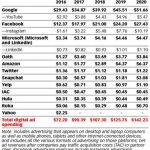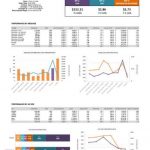How Thumbtack Creates Work By Giving The Yellow Pages An AI Twist
 By Lauren Smiley
By Lauren Smiley
It’s standing room only in the Thumbtack cafeteria at the last “all thumbs” meeting of the year. Marco Zappacosta, the company’s bearded, 32-year-old cofounder and CEO, grabs the microphone in front of more than 300 staffers at the San Francisco headquarters, as 300 others stream in from a customer service center in Salt Lake City.
He cues up an emoji-filled graph of his “emo ro-co”—startup pidgin for “emotional roller coaster”—from the past year. Zappacosta’s nine-year-old platform connects customers with local professionals to book everything from landscaping services to math tutoring. The rocky ride over the past year was tied to the company’s development of a new system called Instant Match, which automates the bidding process for pros and algorithmically pairs them with customers’ job requests.
The emojis form a bowl shape: In the early months of 2017, a crest of happy faces marks Zappacosta’s “blissful ignorance,” followed by a mid-year dip into crying and befuddlement, “when we were just crawling through.” At year’s end, though, a series of smiling and lovestruck faces rises triumphantly—that’s when Zappacosta realized, “Holy shit, we actually have a way to do this!” Thumbtack had transformed the process of finding and hiring service providers online for its users.
The mood of the meeting is businesslike but light—a tone befitting a startup now valued as a unicorn with young founders, and, by a scan of the room, few employees over 40 years old. A guy near the front of the room holds a mallet over a toy xylophone to gong off speakers whose updates stretch longer than two minutes. Meanwhile, Thumbtack’s business is thrumming along, as real-time requests for pros and bids for projects bloop up on a digital map of the United States that fills a nearby screen:
LEAH REQUESTED A COSTUME CHARACTER —somewhere in Nevada
JONATHAN SUBMITTED A QUOTE AS A CARPET CLEANER —in Alabama
These interactions now add up to $1 billion a year in commerce, all booked through Thumbtack. Although the company, which charges service providers a fee when customers contact them in response to a quote, is not yet profitable, Zappacosta predicts it can be by the end of 2019, thanks to Instant Match. In late September, after months of testing, Thumbtack publicly introduced the new system, which personalizes matches to the specific skills and expertise of each pro. It will be extended, in the coming months, to all 1,000 professional categories on the platform.
The feature pushed the company’s quest to monetize local services into hyperdrive: Some pros saw their bookings increase up to 50% by year’s end. It also helped Thumbtack take a major step toward becoming a truly seamless, digital marketplace for the country’s $700 billion–grossing local services industry. As Zappacosta sees it, he’s building a platform where users can book a caterer, plumber, or hairdresser as easily as ordering a book on Amazon, making him a potentially powerful ally to small-business owners across the country.
“Typically, the universe makes it very easy to spend your money,” Zappacosta says over lunch in the Thumbtack cafeteria a couple weeks before his year-end meeting. “But this is a world where it’s hard to spend money.” Zappacosta and his three cofounders, Sander Daniels, Jonathan Swanson, and Jeremy Tunnell, realized as much 10 years ago, during one of their weekly calls to brainstorm startup ideas that could address big problems. They landed on, “Why’s it so damn hard to hire a plumber?” Why do you have to call around, explain your problem, compare bids—or just hire the first company you encounter, and wonder if you’re getting snowed? To Zappacosta and his cofounders, a better way was inevitable. “Someone will build an Amazon- or Alibaba-size company in this space,” he says. “There’s so much money being spent, and it’s almost entirely offline and analog. There’s no way in 5 to 10 years we’re still hiring pros in the same way.”
Internet companies have tried to monetize local services since Citysearch launched in the mid-’90s, sending salespeople out on foot to convince local businesses that the World Wide Web was real and they should be on it. Since then, scores of companies have delved into reviewing or listing service providers (Yelp, Angie’s List); some have tried to make them on-demand (TaskRabbit, which sold to Ikea last fall). But Instant Match is the first to provide instantaneous quotes on specific jobs in a vast spectrum of fields. Its job categories extend from house cleaners to personal trainers, tax accountants to Santas. The site now hosts 250,000 active pros spread across all but two counties of the United States. And it’s far from a coastal phenomenon: Among the markets with the top requests per capita are Atlanta, Salt Lake City, and Minneapolis.

Today, the average quote on Thumbtack is $500, excluding pricey home improvement jobs, which are negotiated offline. While other platforms take a cut of the completed service bill (Amazon Home Services charges up to 20%) or require contractors to pay an annual membership (it’s $300 at HomeAdvisor) along with a fee for each lead, Thumbtack’s fee-per-contact model is premised on charging pros further down the hiring pipeline—when a customer responds to the quote—and lets the pro take home all of the money from the booked job. According to a recent company survey, pros earn an average of $70 an hour through the site—”a solid middle-class lifestyle,” Zappacosta says. Women, who make up 40% of Thumbtack pros, bid nearly 10% higher on jobs than men. (According to the company, women create better profiles to showcase their value.)
This puts Thumbtack in a rare position for a tech company. At a time when Silicon Valley is accused of destroying jobs through automation and AI, Thumbtack is using those tools to help people find well-paying work. After all, while software may be eating the world, it can’t dislodge the hairball in your sink pipe. “Things that can be automated will be automated,” Zappacosta says. The jobs that remain, he believes, will be local services.
True to brand, Thumbtack’s San Francisco office is a shrine to its pros. Paintings of top-rated cleaners and dog trainers line the lobby walls, and their photos bedeck conference rooms; during the holidays, staffers were encouraged to swing by a lobby desk to pen them personal greeting cards. On a December day, underperforming pros were invited in for free headshots and videos to burnish their profiles. Zappacosta addressed a conference table that was a real-life New Yorker cartoon in need of a wry caption: a magician absentmindedly shuffling a card deck sat next to a pink-haired DJ, next to a fit personal trainer in yoga pants, next to a piano teacher with a vintage pillbox hat and a piano-key scarf. After fielding their questions about Instant Match, the CEO concluded, “Without the great work you do, Thumbtack wouldn’t exist. We view it as a team sport.”
Plumbers were making good money before Thumbtack and will still make money should the company fail. To get them to participate (and keep them from penning a bad online review), Thumbtack has to find these small-business owners new customers at a high return on investment. That’s in stark contrast to the gig-economy model presented by Uber, whose amateur drivers wouldn’t be able to get fares without the app. Also, “Uber offers a commodity,” Zappacosta says. “All you care about is how cheap it is, so Uber’s incentive is to drive the cost down at the expense of the driver. In our case, these [pros] are not commodities: The reason they’re able to charge $75 an hour is [because] they do a differentiated service. Our goal is to pull them up and find the right customers.”
Thumbtack also doesn’t use salespeople to prod the small-business owners to join, so word of mouth is essential. “If we’re not able to engage and retain [our pros],” Zappacosta says, “we have nothing.”
When Kodi Hyles moved with her family from the Midwest to Texas a couple of years ago, it was to finally start her own makeup business. She set up Kodi the Pro Makeup Services, and advertised with Google AdWords and a wedding planner website. Business in the first months was sluggish, but then another makeup artist suggested Thumbtack. She signed on, and when Instant Match launched, she gave it a try.
Thumbtack’s executive team had decided, in late 2016, that it needed to shake up the platform to grow. Certainly, the company had come a long way from the days when the cofounders worked in a San Francisco house (where one of them lived in a closet, and not a walk-in one), running the business as a subscription service. They’d since landed on a model in which customers requested jobs and then waited for pros to write in with bids. (Thumbtack charged pros for each quote.) Busy pros would often lose out to competitors who had dedicated staff monitoring and bidding on Thumbtack. Others were frustrated when comparison-shopping customers didn’t respond to their paid-for bids. Meanwhile, some job requests didn’t receive any quotes, a turnoff for customers. “Imagine if Google didn’t have any results for some searches,” VP of product Noam Lovinsky says.

To get rid of such friction, Thumbtack needed to automate the bidding process, a monumental task. Finding a way to scale a business based on highly specialized services “is the holy grail,” says Citysearch cofounder Jeffrey Brewer. “The plumber doesn’t even know what the problem is until they put the snake into the pipe. When you start getting into the granularity of the business, they’re all so different and specialized.”
To create Thumbtack’s Instant Match system, the company’s engineering and data teams mined eight years’ worth of job information. They learned that dog groomers spend more time attending to fluffy-haired chow chows than smooth-coated beagles, for example, and charge accordingly. Wedding officiants like to specify which kinds of religious ceremonies they’ll perform, the zip codes they’ll travel to, and whether they’ll attend rehearsals or help write the vows. Thumbtack would also need to know these independent workers’ up-to-the-minute schedules, in order to suggest them for jobs. “No one wakes up saying, ‘I want to send bids,’?” Zappacosta says. “The challenge is giving people enough control so that they trust Thumbtack to quote on their behalf as well as they could themselves.”
To set Instant Match in motion, the company now collects the job preferences, pricing details, and schedules of each pro and asks customers to fill out brief but incisive questionnaires with their job requests. The company’s algorithms predict which jobs a pro is best suited for and send out bids on her behalf. If a customer contacts her, Thumbtack charges the pro a dynamic fee based on the sticker price of the quote itself.
Thumbtack started rolling out Instant Match last February. By the end of the year, it had enabled the feature for nearly a quarter of job requests. Instant Match has boosted the number of quotes pros send out by 86%, and increased customer contacts by 60%. Anecdotally, workers have credited the feature with growing their bookings between 20% and 50%. “It was not just a small feature change,” says Lovinsky. “It was a full rewrite of our product.”
For Hyles, signing up for Instant Match immediately set her Texas makeup business boiling. A feature shows her the average price quoted on Thumbtack in her area for specific types of jobs—which Zappacosta says usually leads to pros setting their fees closer to the average. Not Hyles, who often quotes well above the average, given that she uses high-end products, has several certifications, and will travel even for smaller jobs. Each week, she sets a $120 budget cap on Thumbtack, which usually nets her about 100 quotes and 10 new clients.
Instant Match has gotten Thumbtack one step closer to the Amazon-like style of convenience that harried customers crave. But Zappacosta has no desire to fully emulate (or be bought by) the behemoth. “Amazon is good at ruthless efficiency,” he says. “It’s not known for its humanity, but humans are at the core of this experience.”

In recent years, Thumbtack has become something of a megaphone for small proprietors. Since 2012, the company has surveyed pros every month on the political and regulatory climate of cities and states. It uses the insights from this Small Business Friendliness Survey to advocate for its professionals. “We view it as our job to represent them and be their voice in these debates,” says Zappacosta.
In 2015, Thumbtack corralled 60 of its pros to talk to the U.S. Small Business Administration in Obama’s White House, and a company rep testified at an SBA hearing on federal regulatory fairness last summer. During the recent debate over the future of healthcare, Thumbtack released a survey showing that one-fourth of its pros credited the Affordable Care Act with giving them the confidence to start their own business. During a panel with Virginia senator Mark Warner at the company’s headquarters last year, Thumbtack’s managing counsel talked about the importance of portable benefits, which don’t rely on traditional employment.
Industry watchers like Steven Hill, an on-demand economy skeptic who wrote Raw Deal: How the “Uber Economy” and Runaway Capitalism Are Screwing American Workers, say Thumbtack could help its pros even more by gathering them into a pool to offer insurance and worker’s injury compensation. “If Thumbtack wants to be a cutting-edge company and part of the future,” he suggests, “they could say, ‘We are going to be a vehicle for these workers to get access to these benefits that workers have traditionally had.’?” Zappacosta has mulled rolling out further benefits for workers. For the moment, he’s focused on delivering on his pros’ first priority: more customers. But as Thumbtack gains more power over the market—and, by extension, the small-business owners who increasingly rely on its platform—he may find himself under pressure to do more.
For Kodi Hyles, in Fort Worth, the money from her Thumbtack gigs has been its own benefit. Ninety percent of her work now comes from the platform, which brings in about $2,200 a month in earnings. Hyles has been so successful, in fact, that she recently bought an ElDorado shuttle bus and outfitted it with high-end couches, mirrors, and mood lighting. It’s the $10,000 mobile makeup studio that Thumbtack money built. Now, if the Instant Match system would allow her to set higher prices for brides than bridesmaids, she’d be totally happy. She told customer service as much in a recent call, and they said they’d work on it.
Thumbtack is No. 23 on the 2018 World’s Most Innovative Companies list. Check out all 50 companies here.
(35)














